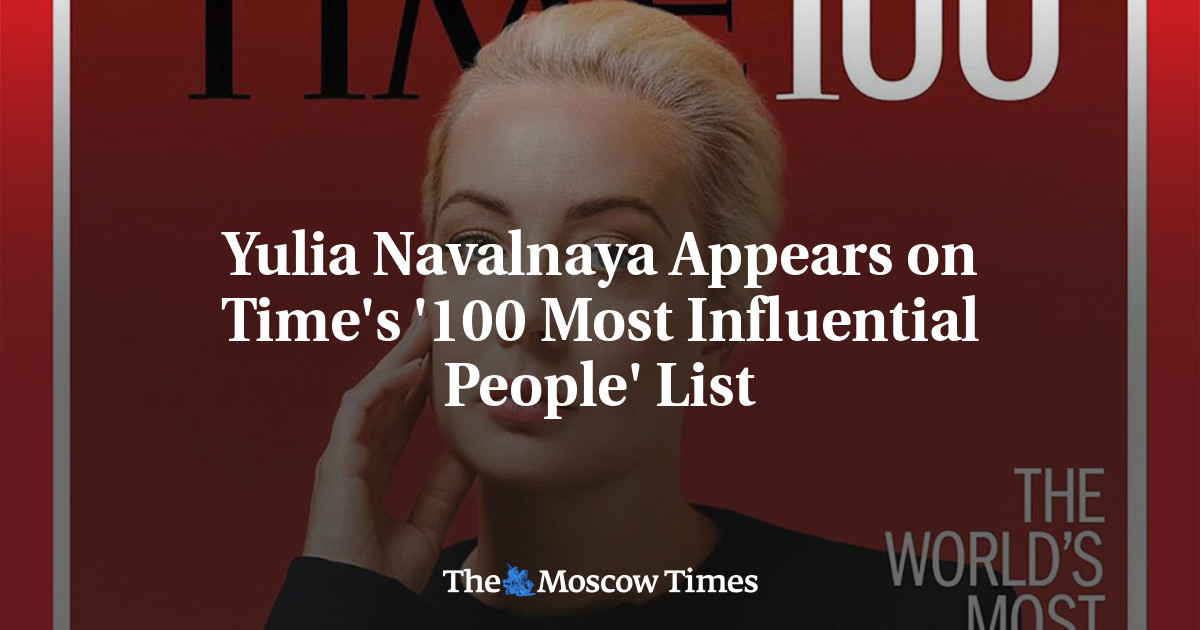
Yulia Navalnaya, the widow of late Russian opposition activist Alexei Navalny, has been included on Time magazine’s annual list of the world’s 100 most influential people.
In an interview with Time — her first since Navalny’s Feb. 16 death in an Arctic penal colony — Navalnaya, 47, said she chose to enter politics to give hope to her husband’s supporters and show the Kremlin that his death will not eliminate the anti-Putin resistance.
“[Alexei and I] did not talk about [me going into politics],” she said. “I just thought that this can’t be allowed to happen. If they think they can kill Alexei and that’s the end of it, they are wrong.”
She voiced frustration with Western leaders, who she said have shied away from sanctioning President Vladimir Putin’s wealthy inner circle.
“Such sanctions really hit Putin’s power, whereas the sanctions that affect random people, like the ones that were imposed by the EU and Great Britain after Alexei’s killing, they are quite laughable. These are sanctions against the rank and file,” she said.
She reiterated her characterization of Putin as a “gangster,” not a politician.
“The problem is that the West thinks of Putin as a politician. But he has long ceased to be a politician. He is the head of an organized crime group. All of his inner circle are criminals. They have committed war crimes, they have violated laws, they have stolen a whole lot of money from the people of Russia, all while keeping the people of Russia in poverty,” she said.
“To the benefit of people around the world, Yulia Navalnaya has now assumed her own leadership role on the world stage,” U.S. Vice President Kamala Harris wrote in a short annotation to Time’s inclusion of Navalnaya on its list.
Harris said Navalnaya’s pledge to continue opposing the Kremlin has given “renewed hope to those working against corruption and for a free, democratic Russia.”
“Navalnaya has emerged not only as a symbol of democratic values, but as a courageous fighter for them. The United States stands with her — and all those fighting for freedom and democracy,” Harris said.
In March, Navalnaya rallied thousands of Russians to go to polling stations and embassies on the final day of Russia’s presidential election to demonstrate their resistance to President Vladimir Putin.
She has said her team would work with the international community to not recognize Putin as a “legitimate” leader after he won the election by an overwhelming margin.
The Kremlin has cast Navalnaya as an “out of touch” exile, while Russian state-run media have subjected her to personal attacks over her physical appearance and actions after her husband’s death.
“Honestly, I don’t care whether [Putin] fears me or not,” Navalnaya told Time.
“But in light of the campaign they have launched against me in recent months, always inventing, generating news around me, it’s clear that some propagandists sold him on the theory that they need to fight against me. So that pressure will grow. The Russian state always loves to find another enemy,” she said.